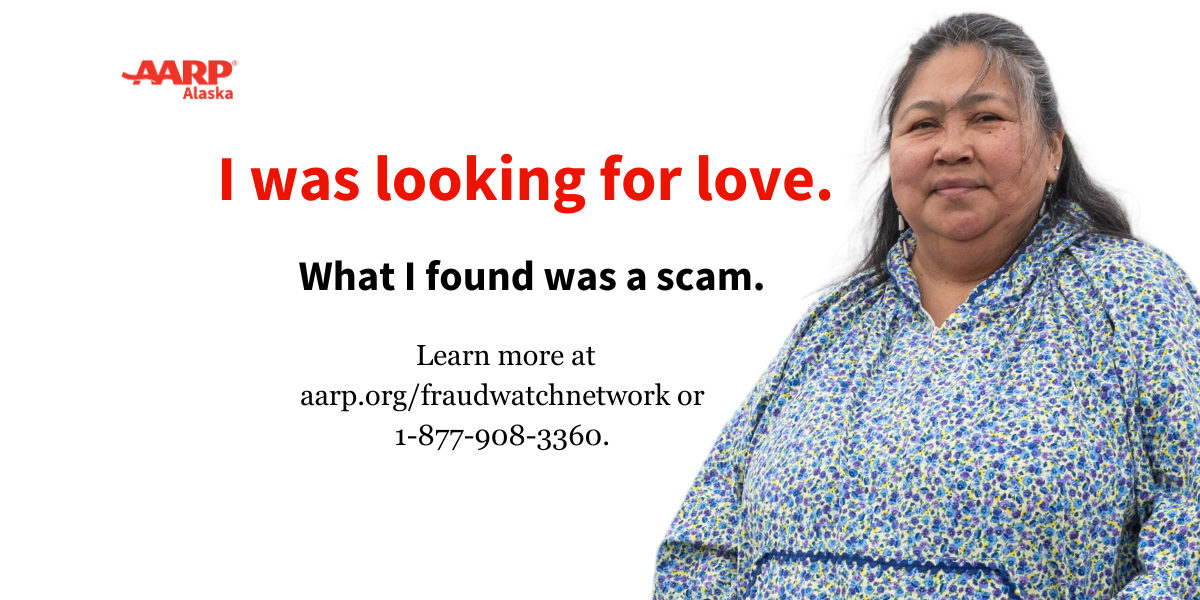Romance and Dating Scams

by Michelle Tabler, AARP Alaska Volunteer Fraud Education Expert
Romance scams are big business for criminals because millions of people are using dating sites. According to the Federal Trade Commission, $547 million was lost to romance scams, up 80% from 2020, with much of that money paid with gift cards and cryptocurrency. And this is just the tip of the iceberg – many people never report scams because they are too embarrassed, or because they don’t know where to report the theft. Both men and women are susceptible to these types of scams.
It’s estimated that there are over 120 million fake online profiles on social media sites. Scammers post fake profiles online, often by hijacking photos and text from existing accounts. The most sophisticated scammers will create social media accounts under their fake names to create a wider footprint. Often, they claim to be local but temporarily working overseas or in the military and currently deployed – that’s why they can’t meet the victim in person.
Once engaged with a potential victim online, they will suggest moving the “relationship” to personal emails and text messaging. All the while, they are building a romantic relationship with their victim and garnering trust. They move quickly to intensify the relationship. Before long, they will come up with a reason for the victim to send money: cash for airfare to visit, a family emergency, a business deal that needs upfront cash and their money is temporarily tied up (but they will pay you back very soon). In one local scam, the con artist purported to be building the couple’s dream home but ran into cost overruns and needed more cash to finish “their” home. The victim had never met her boyfriend in person, but (she thought) they were in love and engaged to be married.
Three red flags jump out in these scams: the romantic interest is not able to meet with you in person; they ask for money once they gain your trust; and they need your money quickly. The scammer will ask you to wire the money, put the money on gift cards and give them the PIN codes, or have you use a money transfer app. Wiring money or filling prepaid cards is the same as sending cash – you’ll never get it back.
If you are using online dating services, avoid sending money no matter what reason is given, especially to someone you have never met. Be wary if the person finds excuses not to communicate other than by text or email. You can enter the person’s photo and text from their profile into a reverse image search. Fake profiles tend to have a recent join date and just a few friends listed. Remember, many of these profile photos and other information may have been hijacked from a legitimate site or a real person. It’s also important to never to give out personal information or any bank or credit card account numbers.
Social media and online dating sites have made meeting new people easier. Just be cautious, protect your personal information, and do your research. The AARP Fraud Watch Network is a free resource for all. Visit aarp.org/fraud for tips on proactively spotting scams, expert guidance if you’ve been targeted, and The Perfect Scam, a weekly podcast that tells the stories of people who find themselves the target of a scam, featuring leading experts who pull back the curtain on how scammers operate. To report a scam to the Fraud Watch Network helpline, call 877-908-3360.



